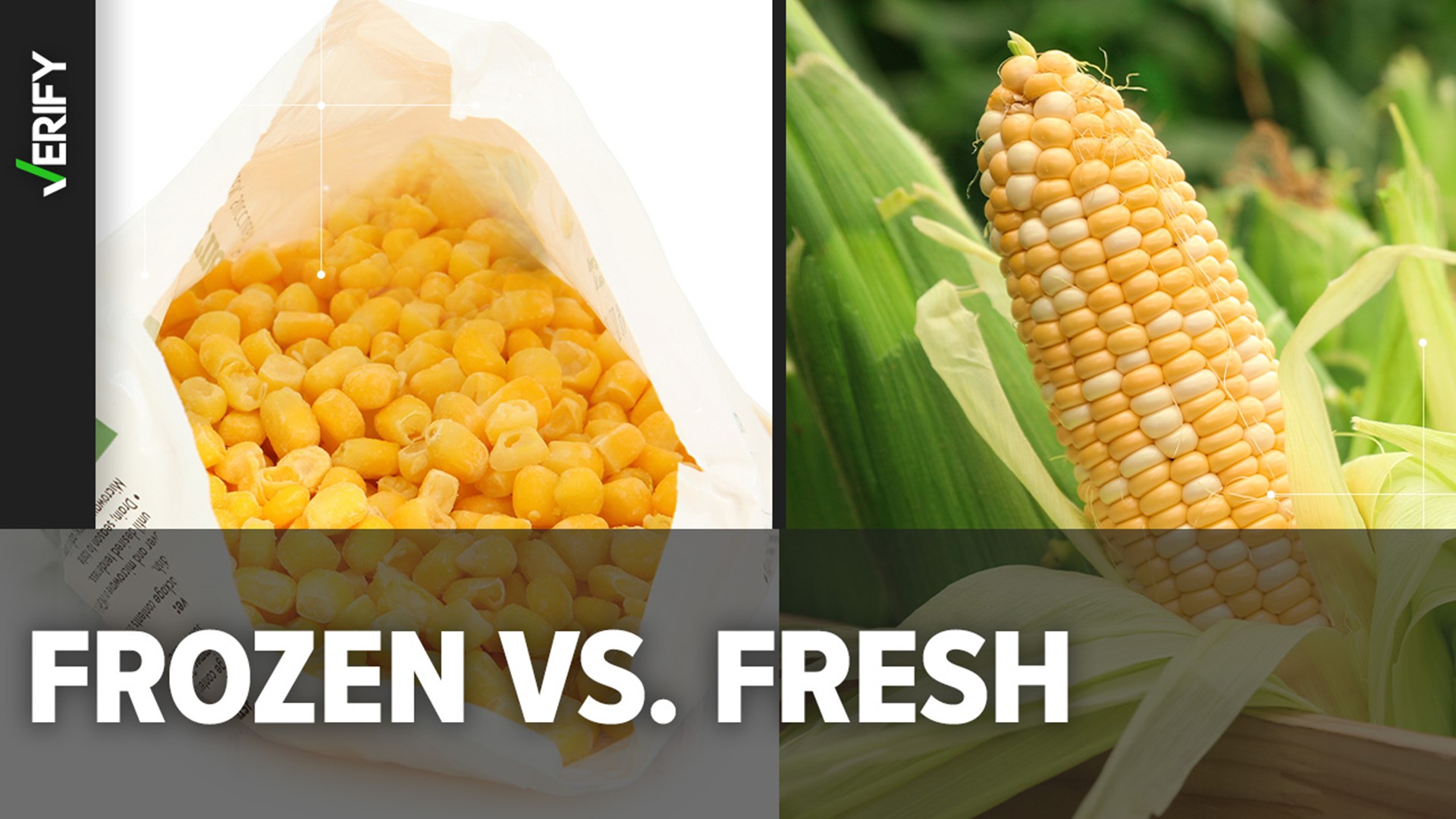Many people save money at the supermarket by switching from fresh vegetables to frozen.
But Google search data shows that some people online are wondering if frozen vegetables are as nutritious as the fresh veggies sold at their local grocery store.
THE QUESTION
Are frozen vegetables as healthy as fresh vegetables?
THE SOURCES
- Cleveland Clinic
- Houston Methodist
- Michigan State University Extension
- Study by the University of California-Davis
- Study published in the Journal of Food Composition and Analysis
- Shelley Maniscalco, registered dietician and founder of Nutrition on Demand
THE ANSWER
Yes, frozen vegetables are just as healthy as fresh vegetables.
WHAT WE FOUND
Frozen vegetables are just as healthy as fresh vegetables sold at the grocery store, according to the Cleveland Clinic and Houston Methodist Hospital. In fact, researchers have found that frozen produce is generally nutritionally similar to fresh produce. This also applies to canned vegetables.
“Fresh veggies often taste the best, especially if the vegetable is in season. But the good news is that the nutritional value of a vegetable isn't reduced during either the canning or freezing process — making canned or frozen veggies just as healthy as fresh ones,” Emma Willingham, a former clinical dietitian at Houston Methodist, said.
Vegetables picked straight off the vine have the most nutrients. But unless you grow your own veggies or live near a farm or a farmer’s market, you’re most likely getting your fresh produce from the grocery store.
It usually takes a few days to several weeks for fresh vegetables to go from a farm to your fridge, according to a University of California-Davis study. During that time, the vegetable’s nutrients begin to break down. The exact amount of nutrient degradation depends on the type of vegetable and the particular nutrient.
Frozen vegetables, on the other hand, are typically picked and flash-frozen within hours of being harvested, registered dietician Shelley Maniscalco told VERIFY. This allows frozen veggies to retain more of their nutrients, vitamins and minerals, the Cleveland Clinic and Houston Methodist both say.
“Freezing is like nature's pause button. Since frozen veggies are flash-frozen at the peak of their nutrient density, they can actually have higher nutrient profiles than fresh veggies that have sat around in the grocery store for a while,” Willingham said.
Researchers at the University of California-Davis said the freezing process is typically preceded by blanching, a short-time heating step that inactivates enzymes, which may result in some relatively limited loss of quality.
The Michigan State University Extension shares its advice for purchasing frozen vegetables on its website. Their tips include only buying plain frozen veggies that don’t contain added sauces in order to avoid unwanted fat and calories.

